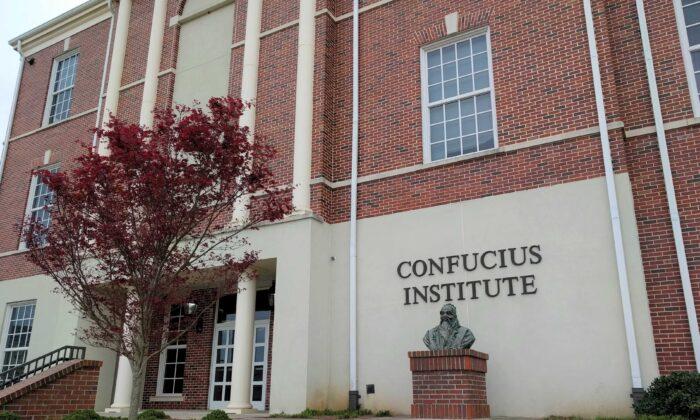Some Canadian educational institutions continue to host Confucius Institutes (CI) despite a growing trend in North America and other parts of the world in which schools and universities are cutting ties with the program, which is funded and controlled by the Chinese regime.
The institutions were asked whether they would continue to host the program in light of this new revelation.
Beijing Ties
Confucius Institutes are funded by the Chinese Communist Party (CCP) and have been accused of operating as a propaganda arm of the regime.Cardy added, “We had members of the Chinese Communist Party who were working for the Confucius Institute who have access to the databases and student information of New Brunswick students.”
Responses
Edmonton Public Schools said their partnership with CI is “rooted in providing cultural and language supports” to students who enrolled in their bilingual program.“The Confucius Institute does not directly offer programming in our schools in the traditional sense; rather, it supports the Chinese (Mandarin) Bilingual programming in 14 Division schools,” said spokeswoman Veronica Jubinville.
“This programming is under the direction of Alberta certificated teachers and principals and aligns with the province’s Education Act and the Alberta Program of Studies.”
“We are anticipating renewing the agreement to maintain the Confucius Institute, but with some modifications to ensure transparency,” said spokeswoman Everett Dorma, adding that CI’s operation “shall be in full compliance with the policies and regulations of the U of R.”
“The Institute is a non-academic unit offering primarily cultural programs that are exclusively non-credit in nature and is funded with support from the U of R and Hunan University,” she said.
The University of Saskatchewan said it believes its relationship with CI “can transcend even profound political differences.”
“We are committed to advancing the free exchange of ideas among academics, irrespective of governmental policies and practices, in order to fulfill our educational mission,” spokeswoman Victoria Dinh wrote.
“Courses taught through the CI are not part of our USask academic programs,” she said. “Bearing in mind geo-political realities, we continue to monitor our relationship with the Confucius Institute.”
“Courses offered at this institute are separate from university courses and, as such, are not university accredited,” she said. “This institute is not involved in academic matters at the university.”
Coquitlam School District said there wasn’t any contract to renew with CI as Hanban, the government body that had run the institutes, has ceased operating.
“There was no contract to ‘renew’ as the institute headquarters in China is now closed,” said Coquitlam spokesman Ken Hoff.
“The Chinese Language and Cultural Institute in Coquitlam continues to offer afterschool language and culture courses to interested residents of Coquitlam and the surrounding municipalities,” Hoff wrote.
‘After Confucius Institutes’
Doris Liu, producer of the documentary “In the Name of Confucius,” told The Epoch Times that “[schools have] been using the ‘closure’ of Hanban to shield their partnership with CI so as to shrug away any criticism.”“The new organization replacing Hanban is still under the PRC education ministry. It is not clear how this new organization operates,” she said.
“On the other hand, the CCP continues to export its influence on educational institutes abroad through Chinese universities which have established partnerships with these host institutes. The only difference is that this new organization is not called Confucius Institute, and instead of being directed by Hanban, it’s directed by Hanban’s replacement.”
“Many once-defunct Confucius Institutes have since reappeared in other forms,” the report said.





